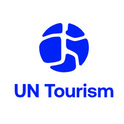UN Tourism Launches National Open Innovation Challenge in Collaboration with France
UN Tourism has announced the UN Tourism National Open Innovation Challenge, in partnership with France. This groundbreaking collaboration marks a significant milestone as it is the first time UN Tourism and the Government of France have joined forces to empower innovation and entrepreneurship in the sector.
France, the most visited country in the world with 100 million international tourist arrivals in 2023, is also a vibrant hub for innovation and entrepreneurship. With nearly 60,000 startups and over 30 unicorns, it stands as a beacon of innovation.
As the world's leading tourist destination and a land of innovation with a dynamic ecosystem of start-ups, France is now giving itself the resources it needs to nurture the future champions of travel tech. This is good news for the tourism economy, but it's also good news for the planet. It's in our start-ups that the solutions for building a more sustainable, more responsible tourism and for decarbonising the entire sector are being born. I am delighted that they can now benefit from the recognition and support of UN Tourism, which will enable them to become more international and share their best practices. Marina Ferrari, Delegated Minister for Tourism Economy of France
As the world’s top tourism destination, France is at the forefront of innovation. Our new competition will help find and recognize the next wave of tourism innovators and give them the support they need to truly transform our sector. UN Tourism Secretary-General Zurab Pololikashvili
We commend the impressive ‘Welcome to France’ and ‘French Tech’ initiatives. These initiatives nurture and guide successful startups by leveraging the strengths of their communities. They set an exemplary standard for the rest of the world, encompassing almost 25,000 startups and representing over 1.1 million direct and indirect jobs. Natalia Bayona, UN Tourism Executive Director
The Challenge is open to pairs of French startups (headquartered in France) and large companies (French or foreign) in the tourism sector.
- The co-developed solution must address a use case in travel tech or tourism innovation.
- Startups must have a minimum viable product (MVP), a prototype, or a solution ready for scaling.
- Companies must be able to provide resources, mentorship, and support for implementation and expansion.
Applications are now open and will close at the end of March 2025.
Related links
About UN Tourism
The World Tourism Organization (UN Tourism) is the United Nations agency responsible for the promotion of responsible, sustainable and universally accessible tourism.
As the leading international organization in the field of tourism, UN Tourism promotes tourism as a driver of economic growth, inclusive development and environmental sustainability and offers leadership and support to the sector in advancing knowledge and tourism policies worldwide.
Our Priorities
Mainstreaming tourism in the global agenda: Advocating the value of tourism as a driver of socio-economic growth and development, its inclusion as a priority in national and international policies and the need to create a level playing field for the sector to develop and prosper.
Promoting sustainable tourism development: Supporting sustainable tourism policies and practices: policies which make optimal use of environmental resources, respect the socio-cultural authenticity of host communities and provide socio-economic benefits for all.
Fostering knowledge, education and capacity building: Supporting countries to assess and address their needs in education and training, as well as providing networks for knowledge creation and exchange.
Improving tourism competitiveness: Improving UN Tourism Members' competitiveness through knowledge creation and exchange, human resources development and the promotion of excellence in areas such as policy planning, statistics and market trends, sustainable tourism development, marketing and promotion, product development and risk and crisis management.
Advancing tourism's contribution to poverty reduction and development: Maximizing the contribution of tourism to poverty reduction and achieving the SDGs by making tourism work as a tool for development and promoting the inclusion of tourism in the development agenda.
Building partnerships: Engaging with the private sector, regional and local tourism organizations, academia and research institutions, civil society and the UN system to build a more sustainable, responsible and competitive tourism sector.
Our Structure
Members: An intergovernmental organization, UN Tourism has 160 Member States, 6 Associate Members, 2 Observers and over 500 Affiliate Members.
Organs: The General Assembly is the supreme organ of the Organization. The Executive Council take all measures, in consultation with the Secretary-General, for the implementation of the decisions and recommendations of the General Assembly and reports to the Assembly.
Secretariat: UN Tourism headquarters are based in Madrid, Spain. The Secretariat is led by the Secretary-General and organized into departments covering issues such as sustainability, education, tourism trends and marketing, sustainable development, statistics and the Tourism Satellite Account (TSA), destination management, ethics and risk and crisis management. The Technical Cooperation and Silk Road Department carries out development projects in over 100 countries worldwide, while the Regional Departments for Africa, the Americas, Asia and the Pacific, Europe and the Middle East serve as the link between UN Tourism and its 160 Member States. The Affiliate Members Department represents UN Tourism's 500 plus Affiliate members.
UN Tourism Communications Department
+34 91 567 8100
UN Tourism
